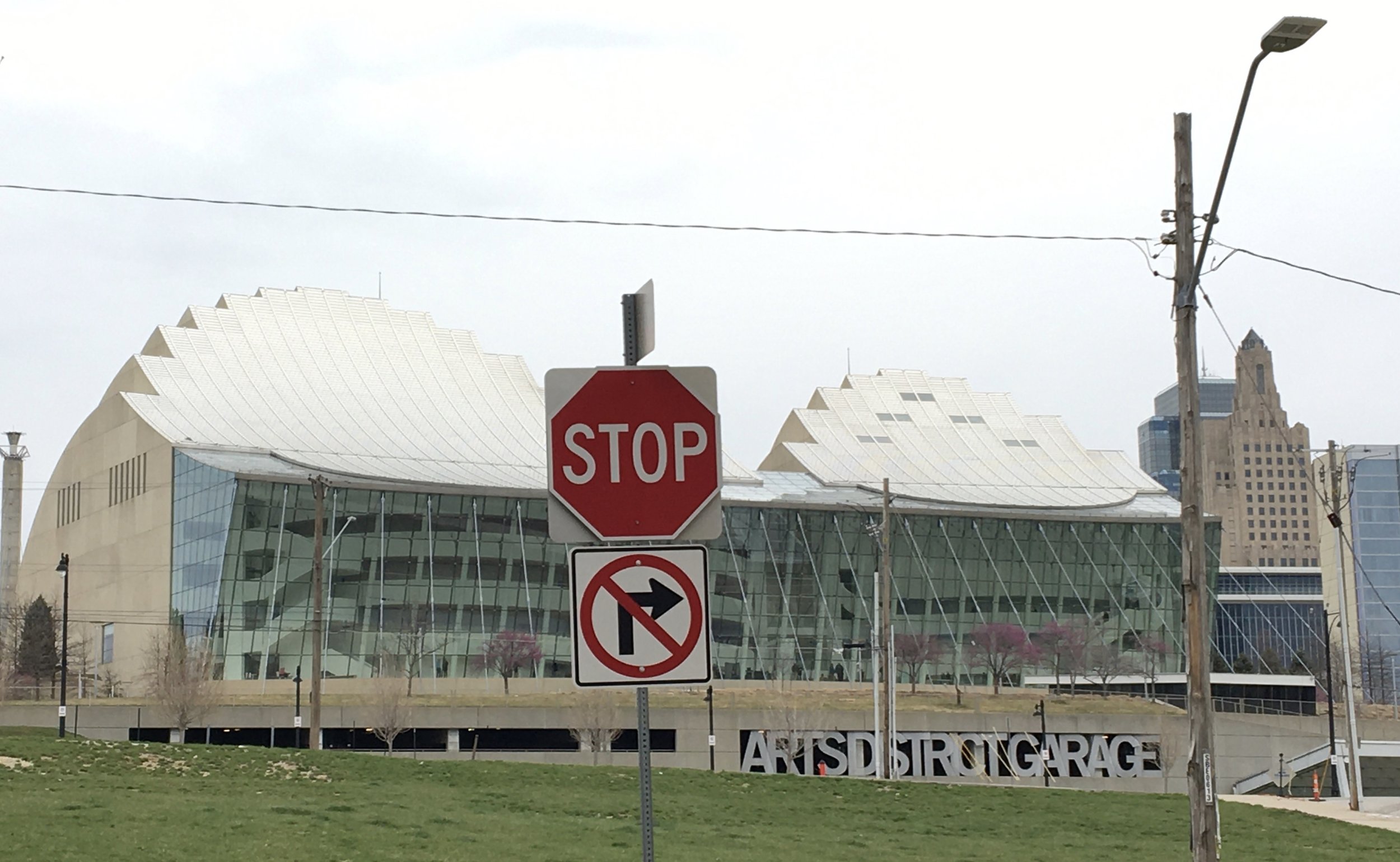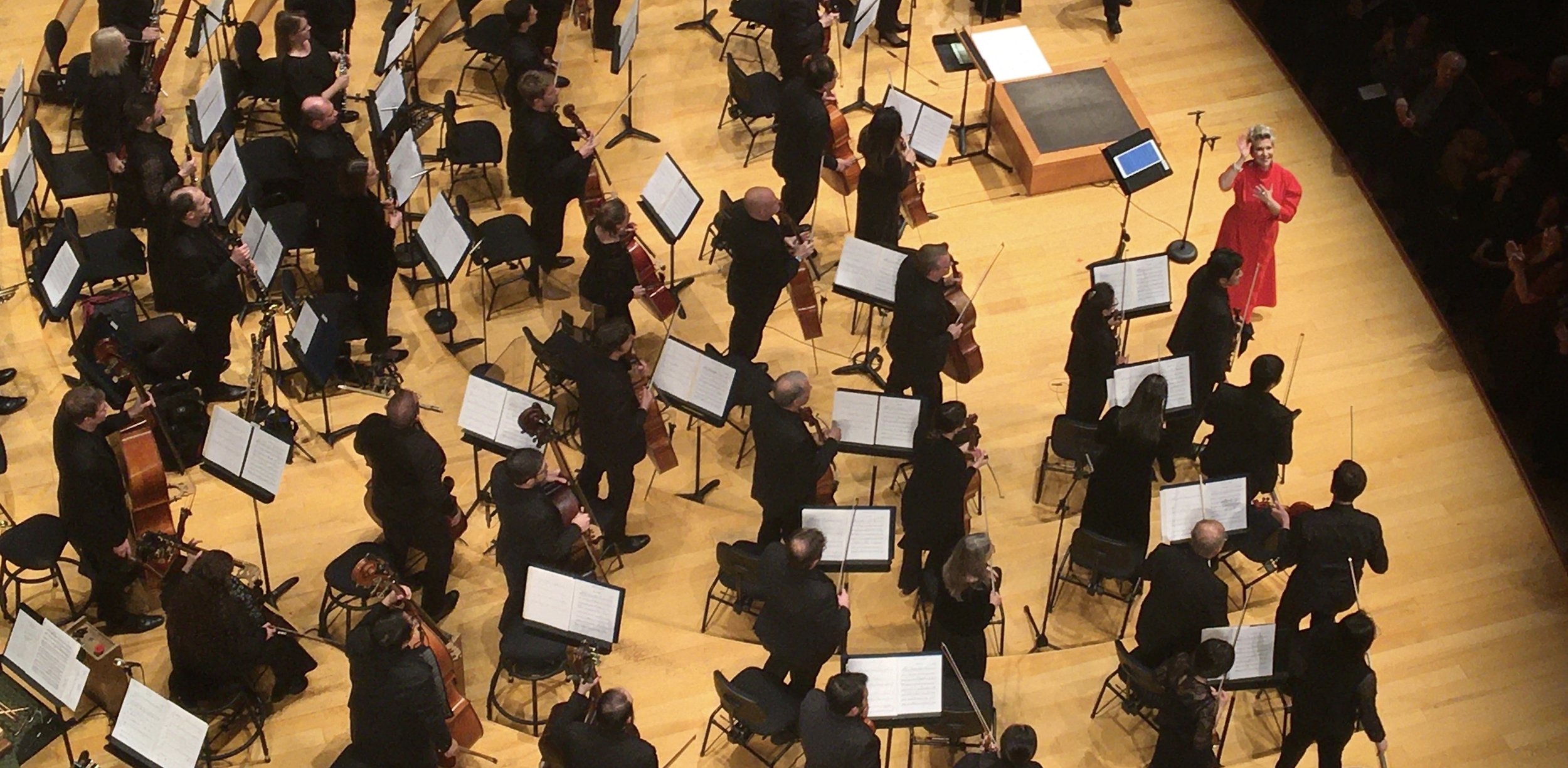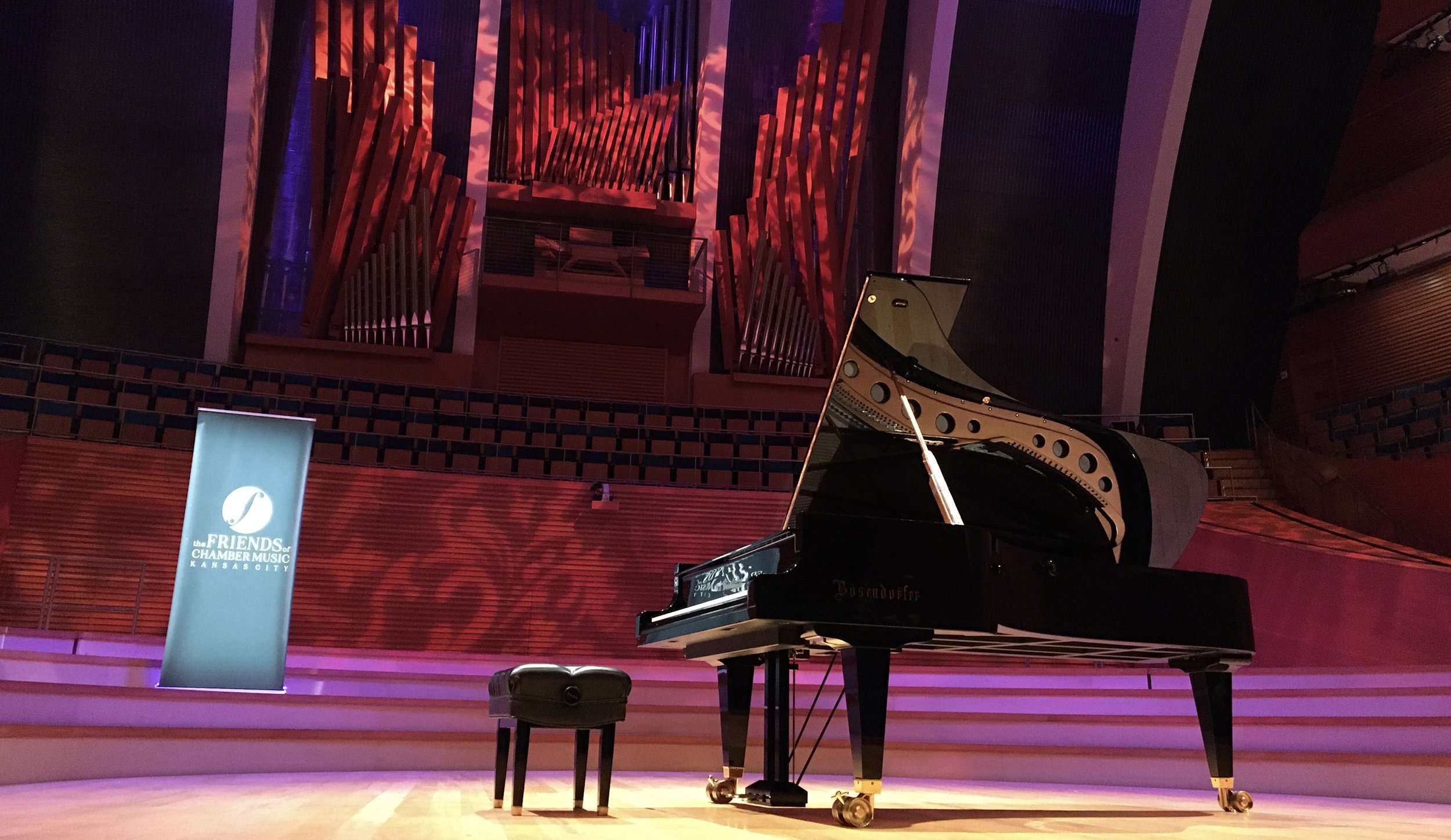Original image by There Stands the Glass.
I joined more than 1,000 concert-goers at the last of three de facto coronation ceremonies at Helzberg Hall on Sunday, March 24. Matthias Pintscher, the incoming Music Director of The Kansas City Symphony, appears to be a talented, benevolent and humble potentate.
Prior to the performance, the audience was told that Pintscher was mourning the death of his mentor Peter Eötvös. The distressing news raised the stakes for a vibrant reading of Leonard Bernstein’s Symphonic Dances from ‘West Side Story’.
Composer Errollyn Wallen was in the house for the world premiere of her Violin Concerto. I couldn’t discern the hushed passages played by guest artist Philippe Quint from my seat in the rafters.
Charles Ives’ loopy “Three Places in New England” was my favorite piece. I sense the subversive programing is an indication of Pintscher’s plans for the Symphony. Aside from the prominence of a saxophone, Sergei Rachmaninoff’s “Symphonic Dances” didn’t do much for me.
All tickets were $37 for the concerts billed as “Matthias Pintscher Conducts Symphonic Dances: West Side Story and Rachmaninoff”. Having gladly made the investment, I’m eager to evaluate the responses to Pintscher’s oversight of the Symphony at three European concerts in August. Here’s to fresh starts and new beginnings.




